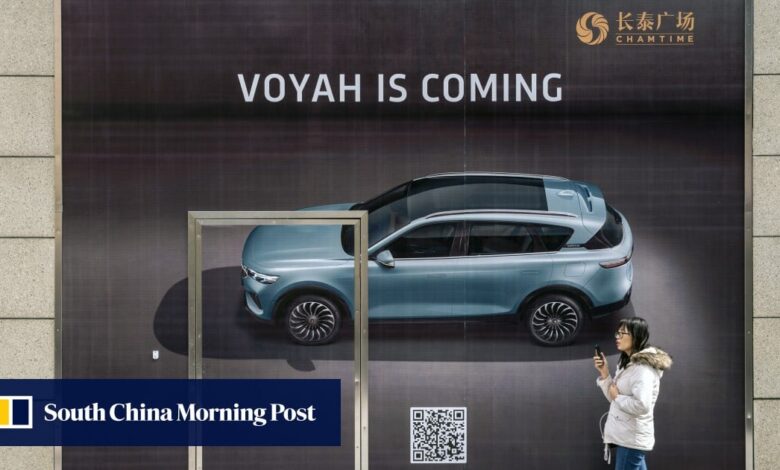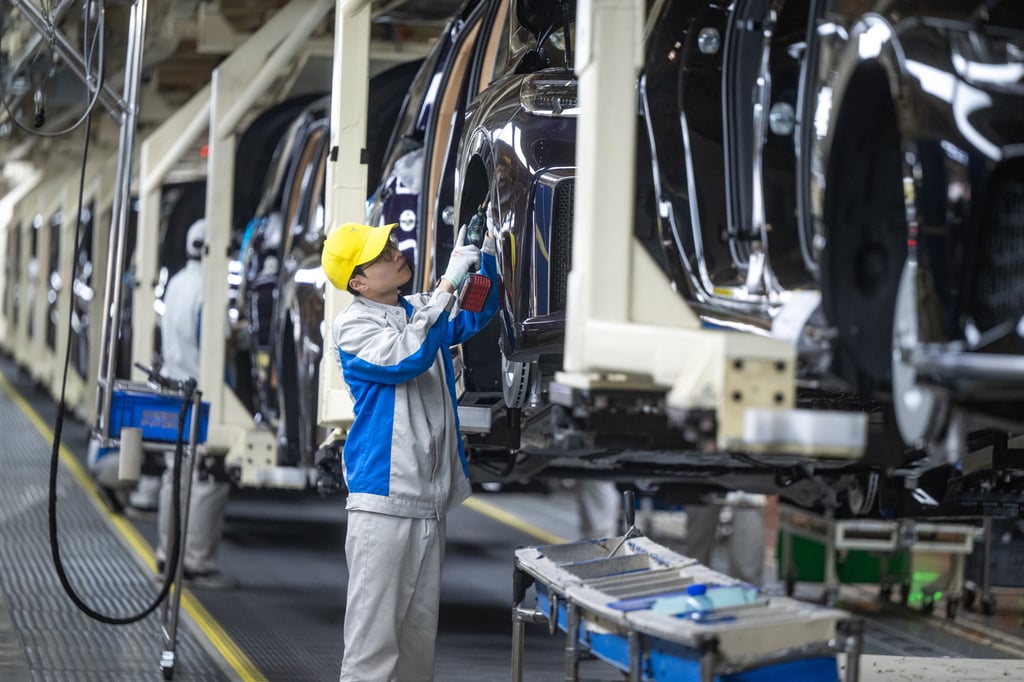Dongfeng joins stampede of Chinese EV makers abroad with its Voyah Zhiyin all-electric SUV

Dongfeng Motor, one of China’s largest carmakers and the partner of Nissan Motor and Stellantis, has become the latest assembler to join the stampede abroad to survive the brutal price war in the world’s largest vehicle market.
Dongfeng’s premium electric vehicle (EV) brand Voyah will be released in mid-September an all-electric sports-utility vehicle called Zhiyin for the export market, the carmaker’s chief executive Lu Fang said in a post on Saturday on the Weibo social media platform.
“Original design is crucial for Chinese cars to go global,” Lu said on the X-like platform, adding that he is confident that Zhiyin would gain recognition in the global market.

Dongfeng, known as the Second Auto Works before being renamed to represent the “easterly winds” in Chinese, did not disclose any pricing details, or the destinations that Zhiyin will be shipped to.
Chinese EV manufacturers are increasingly looking for business opportunities overseas as domestic competition and price war are intensifying in the world’s largest automotive market.
In February, BYD, the world’s largest EV maker, fired the first salvo in the price war, slashing the price of nearly all its cars by between 5 and 20 per cent for each model.
Other major Chinese EV brands such as Nio, Xpeng, and Li Auto have all offered heavy discounts to maintain their market share, while risking their profitability.
Voyah announced its global expansion strategy in April at China’s largest auto show in Beijing, with targets to set up 500 sales and services facilities in 60 countries across six continents by 2030, and sell at least 500,000 vehicles overseas at the same time.
The EV maker launched Voyah Free and Voyah Dream in Spain in June, and opened its first showroom in Madrid to mark its official entry into the Spanish market.
By the end of 2024, Voyah plans to further expand into European markets in Portugal, Belgium and Germany, according to the company.
As more Chinese EV makers eye on regions such as Southeast Asia and Europe to boost sales and offset their losses at home, a price war is also spreading to overseas markets.
Earlier this year, BYD slashed the prices of the updated versions of its flagship Atto3 sport-utility vehicle (SUV) in Thailand by 18 per cent to 899,900 baht (US$24,542). This was followed by similar discounts offered by Chinese rivals Changan Automobile and Hozon.
Duplicating the price competition abroad is not sustainable since consumers will start to doubt the quality and reliability of the cars if they are frequently discounted, according to Bain & Co.
“Chinese companies have the potential to redefine electric cars so that they can convince global customers of their products’ competitiveness in performance and technology,” Helen Liu, a Bain partner, told reporters at a media briefing in June. “The pricing advantage will eventually run out of steam. It is product quality, technology and brand awareness that hold the key to Chinese carmakers’ success.”
Source link



